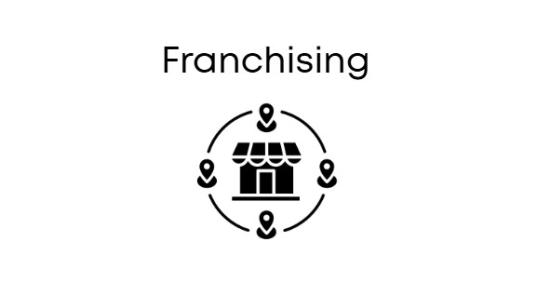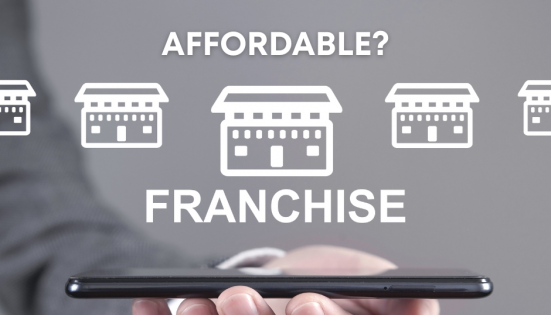10 Questions To Ask When Buying A Business
10 Questions To Ask When Buying A Business
Inika Pieters
05 September 2025
Summary
Buying an established business is the dream for many South Africans. It’s an opportunity to become your own boss, take ownership and build a legacy for yourself.
But before you take the leap into business ownership, you need to ask yourself and the current owner a few crucial questions.
Use this blog post as a checklist of questions you should ask when buying a business to ensure that you make an informed decision and begin your journey as a successful business owner.
1. Why Is The Owner Selling?
This question is, more often than not, the most important one. The answer will give you an insight into the business’s current state and the owner’s reason for wanting to sell. Does the owner want to retire or immigrate?
It’s crucial to understand the motivation behind the sale to determine if it aligns with your goals and values. If the current owner is selling due to financial struggles, a failing business model, or some other regulatory or legal problem it is important to determine this within your due diligence it might not be worth investing in.
2. How Was The Asking Price Determined?
A business’s asking price can tell you a lot about its true value and potential for growth. Ask the owner how they determined the price. Was there a business valuation done? If so, by whom and when? Are there any assets, such as equipment or property, included in the sale?
Does the business have any unique selling points that justify the asking price? Is it a franchise or an established brand with a loyal customer base?
You should also do your own research (on a business for sale platform, for example) to compare the asking price with similar businesses on the market. This will give you a better understanding of the business’s market value and help you negotiate a fair price.
3. What Are The Key Assets Of The Business, And Are They Still On HP?
Assets in a business refer to anything that the business owns (tangible and intangible), including equipment, inventory, intellectual property, and real estate. It’s essential to know what assets are included in the sale and their current state. Are they still under HP (hire purchase) or other loans?
If yes, what are their settlement amounts? Is the equipment up-to-date and maintained regularly? What about any intellectual property rights - are they up-to-date and transferable to the new owner?
Knowing the status of these assets will not only give you a better understanding of the business’s financial health but also help you plan for any additional investments needed after the purchase.
If, on the other hand, there are no assets included in the sale, then it’s important to understand how the business generates income and what makes it profitable. This leads us to our next question.
4. What Are The Business’s Main Revenue Streams And Profit Margins?
Understanding a business’s main sources of revenue is crucial when evaluating its potential for growth. Ask the owner about their profit margins and how they generate income.
Are there any recurring revenue streams, such as subscriptions or contracts? How diverse are the revenue streams - is the business heavily reliant on one product or service?
Also, consider the profit margins - are they competitive in the industry? Are there chances to increase them in the future?
A thorough understanding of these aspects will help you measure the business’s potential for success and identify any areas for improvement.
5. What Is The Current Customer Base And What Attracts Them?
A business’s customer base is its lifeline, so it’s vital to understand who their customers are and what keeps them coming back. Ask the owner about their target audience and any demographic or psychographic information they have on their customers.
Find out if there is a loyal customer base and how they generate new leads. For example, do they have a strong social media presence or rely on word-of-mouth referrals?
As a buyer, it is crucial to consider the client concentration as well. Does a single client account for 70% of the income? Or is the income well-distributed among multiple clients? A diversified income distribution helps mitigate risk.
Also, try to understand what sets this business apart from competitors and what attracts customers to their products or services. This will give you valuable insight into the business’s reputation and brand image in the market.
6. Are There Industry-Related Regulations Or Compliance Issues?
Every industry has its own set of regulations and compliance requirements that businesses must adhere to.
A franchise business, for example, may have strict guidelines that must be followed to maintain the franchise’s integrity. In contrast, a healthcare business may have to comply with privacy regulations and insurance requirements.
It’s crucial to understand the regulatory landscape for the specific industry that the business operates in. This will not only help you assess any potential risks but also ensure that you are equipped to handle them if you choose to purchase the business.
7. What Is The Business’s Online Presence?
In today’s technological world, a business without an online presence may be missing out on a huge market. According to Meltwater, about 43 million South Africans use the Internet, of which 26 million use Social Media.
Find out if the business has a website, social media accounts, or any other online presence. If they do, it’s important to assess their digital marketing strategy and how effective it is in reaching potential customers.
If the business doesn’t have an online presence, it might be up to you to establish one and drive the business towards a more digital approach. This could be an added expense for you, so it’s important to factor this into your decision-making process.Note that the added expense is not necessarily a bad thing. It ensures scope for growth in the business.
8. What Is The Business’s Financial Health?
Nobody just buys a business for the fun of it. The ultimate goal is to make a profit and grow the business.
It’s important to carefully review the financial health of the business before making a purchase. This includes reviewing past financial statements, tax returns, cash flow projections, and any outstanding debts or liabilities.
If you are not familiar with analysing financial statements, it may be wise to seek the help of a professional accountant, business broker, or financial advisor. They can help you understand the business's current and potential financial status and advise you on whether it is a wise investment.
9. What Is The Current Owner’s Exit Strategy?
An exit strategy gives insight into the current owner’s plans for the business and can significantly impact your purchase decision. Some owners may be looking to retire or move on to other ventures, while others may want to stay involved in some capacity.
It’s important to understand the current owner’s intentions and how they align with your own goals for the business.
If you plan on running the business yourself, it’s essential to know if the owner will be available for a smooth transition or if they plan on completely stepping away.
10. Who Are The Key Employees?
You would want to know who you will be working with once you purchase the business. Identify and get to know the key employees who play a crucial role in the business's day-to-day operations.
Find out their roles, responsibilities, and how long they have been with the company. Their knowledge and experience can greatly impact the success of your ownership.
Do You Have More Questions?
Do you have more questions to ask before making a decision? Don’t be afraid to reach out to us at Business For Sale. We are here to help you navigate through the process of buying a business and make an informed decision.
And remember to keep this checklist of questions to ask when buying a business at your right hand. It will serve as a guide during your search and due diligence process.
More Buyers Knowledge Bank
Get the latest information, valuable tips and share in the professional knowledge of business experts on buying a business
Franchisor and Franchisee Relationship: A Breakdown
The relationship between a franchisor and a franchisee is probably one of the most important aspects of succeeding with a franchise business. One can have a fantastic business plan and concept, but if the relationship is not strong and both parties do not invest time and effort into the relationship, it is more likely that the franchise will not be successful.
E-commerce Business for Sale: The Benefits
Whether you’re looking into buying an e-commerce business for sale because you’re passionate about building up a brand or whether you’re in it for the money, it’s still a good investment. Buying an online e-commerce business is a shortcut to entrepreneurial success compared to building your own business from the ground up. This article will discuss why buying an e-commerce business is better than building one and how much an e-commerce business will cost potential buyers.
Buying a Manufacturing Business for Sale
There are several good reasons why a manufacturer or an entrepreneur might be considering buying another manufacturing business. Acquiring a manufacturer can help you secure your supply chain or even allow you to bring product manufacturing in-house. As part of a diversification plan to develop into new markets, you can acquire a manufacturing company with a complementary or competing product to assist you in securing your customer base.
What to Consider Before Buying a Franchise
Buying a franchise can either be the best financial investment you ever make or the worst. Therefore, it’s crucial to do your research and have the facts before investing. In theory, a franchise is a perfect way for up-and-coming entrepreneurs to have a successful business, without having to build one from scratch. Successful franchises usually already have a business model that works and a loyal customer base.
What Factors to Consider Before Starting a Franchise?
Starting a franchise is the answer to being a business owner without having to start from scratch. To begin your business, you simply follow the franchise business model and utilise the already existing brand equity. Doesn't it sound brilliant?
Car Wash for Sale
Have you been on the lookout for car washes on sale in South Africa? Look no further because Business for Sale has got you covered. With a full listing of business opportunities, business broking tools, valuations, knowledge sharing, and services, Business for Sale is the portal of choice for entrepreneurs.
Franchises Under R500 000 in South Africa
Franchising isn’t always the cheapest way to start a business, but luckily there is a growing number of franchising options in South Africa that don’t break the bank. Franchising is easily one of the safest ways to start a business as you already start with a reputable brand name and access to loyal customers.
"Cheap" Franchises in South Africa
Finding affordable franchises in South Africa can be very easy, thanks to Business for Sale. We already know what the benefits of owning a franchise are, and so naturally, the next best step is to find a franchise that suits your budget. Cheap food franchises in South Africa can be a little tougher to come across, as food franchises tend to be pricier. However, there are other franchises that can be bought into! Most Affordable Franchises in South Africa There are different categories that make for brilliant, affordable franchise options.
Supermarket for Sale
Independent grocery stores may find it a challenge to make a profit. Grocery stores make their profit based on volumes of customers. The Covid-19 pandemic put some pressure on supermarkets when everyone panicked about necessities like toilet paper. Supermarkets had to keep up with the demand, but also struggled under the regulations that prevented the sale of other regular items. Luckily, South Africa’s strictest lockdown levels have abated, giving most South African businesses the opportunity to pick up from where they left off.
Liquor Store for Sale
Unlike many other products for sale, alcohol is one that is not seasonal. People consume alcohol all year round, and liquor sales have yet to drop due to external factors that would typically affect other industries. This makes it a reasonably safe bet to invest in, and become a part of.
Advantages and Disadvantages of Franchising
When considering starting a business, you’ll need to decide whether you want to start from scratch, or if you want to join into a franchise. This decision will depend on your goals and vision. While it can be exciting to begin a business independently, it could also pose a few risks. A franchise brings with it a host of benefits that can’t be found when you’re on your own. We’ve done a little homework for you so that you can make an informed decision about which option is best for you. Take a look below at our lists of advantages and disadvantages of franchising:
Salon Business for Sale
The beauty industry is ever-popular in South Africa, and a great choice for buyers to delve into when looking into buying an existing business. Even after the decimating effects of COVID-19 on the economy, the beauty industry is standing strong, as people prioritise self-care. There are factors to keep in mind to ensure that you develop a successful business plan, before you invest in a salon for sale.
Access to the number one business broking tool to get your business sold.
We've got you covered!
We offer an innovative and intuitive
solution for selling your business, franchise and premises
Promote
your business for sale
Reach
the right audience
Gain
more exposure

Latest businesses for sale
View our latest business listings and be the first to enquire






















